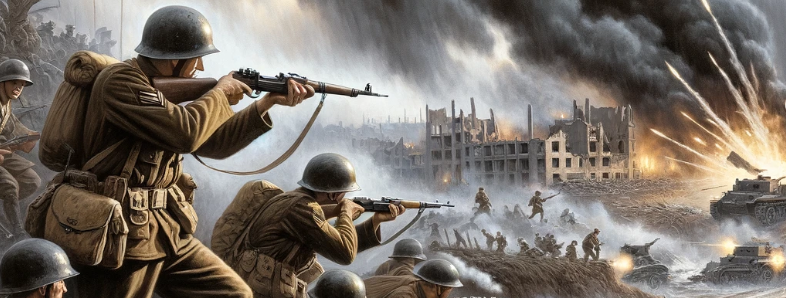| Listen to our audio presentation: History of Russia |
World War II, one of the most devastating conflicts in human history, officially ended in 1945, but its effects continue to resonate in the modern world. From the geopolitical landscape to cultural identities and economic frameworks, the legacy of this global conflict is pervasive and profound. Understanding the continuing impact of World War II is essential for grasping the complexities of today’s international relations and societal structures.
Geopolitical Realignments and the Cold War
The most immediate aftermath of World War II was the significant alteration of the world’s geopolitical map. The war led to the decline of Western European powers like Britain and France, paving the way for the emergence of the United States and the Soviet Union as superpowers. This shift initiated the Cold War era, a period of tense ideological conflict and military standoffs that lasted until the early 1990s. The bipolar world order established during the Cold War continues to influence international relations, with former Soviet states and Eastern European countries still grappling with issues of democracy and integration into Western economic and security structures.
The United Nations and Global Governance
In response to the failure of the League of Nations to prevent the war, the United Nations was established in 1945 to foster international cooperation and prevent future conflicts. The U.N. and its various bodies, such as the World Health Organization and UNESCO, have played pivotal roles in promoting peace, human rights, and development. However, the effectiveness and influence of the U.N. are often questioned, reflecting the ongoing struggle to achieve a cohesive global governance system in the shadow of World War II’s ideological divides.
Economic Impacts and the Marshall Plan
Economically, World War II devastated much of Europe, East Asia, and parts of the Pacific. The Marshall Plan, initiated by the United States in 1948, was a critical component in rebuilding war-torn European economies and stabilizing the region in the face of spreading communism. This plan not only facilitated recovery but also laid the groundwork for major economic entities such as the European Union. Economic disparities and recovery rates have had long-lasting effects, influencing current economic relations and dependencies.
Social and Cultural Transformations
The social fabric of many nations was irrevocably altered by World War II. The Holocaust, the targeted genocide of six million Jews and millions of others deemed undesirable by Nazi Germany, remains a profoundly significant tragedy, shaping ongoing discussions about human rights, racism, and reconciliation. The war also catalyzed significant changes in social roles, particularly in terms of gender as women entered the workforce in unprecedented numbers and gained new social freedoms from which contemporary gender norms have evolved.
Technological and Environmental Legacy
World War II also accelerated technological innovation, some of which laid the foundations for modern technology. Advances in rocketry, nuclear technology, and computing during the war set the stage for the space race and the digital revolution. However, the environmental destruction caused by the war, from nuclear landscapes in Japan to battle-scarred territories across Europe and Asia, continues to pose ecological and health challenges.
Legal and Moral Repercussions
Legally, the Nuremberg Trials and subsequent Tokyo Trials established precedents in international law, particularly concerning war crimes and crimes against humanity. These principles continue to influence international justice systems, including contemporary tribunals and the International Criminal Court.
The aftermath of World War II is not just a historical topic but a continuing narrative that influences global politics, economics, and society. The enduring impacts of the conflict are evident in the continued efforts to address economic disparities, navigate geopolitical tensions, and reconcile with the moral and human rights lessons of the war. The world today cannot be fully understood without acknowledging the deep scars and lasting legacies of this pivotal period in history.

